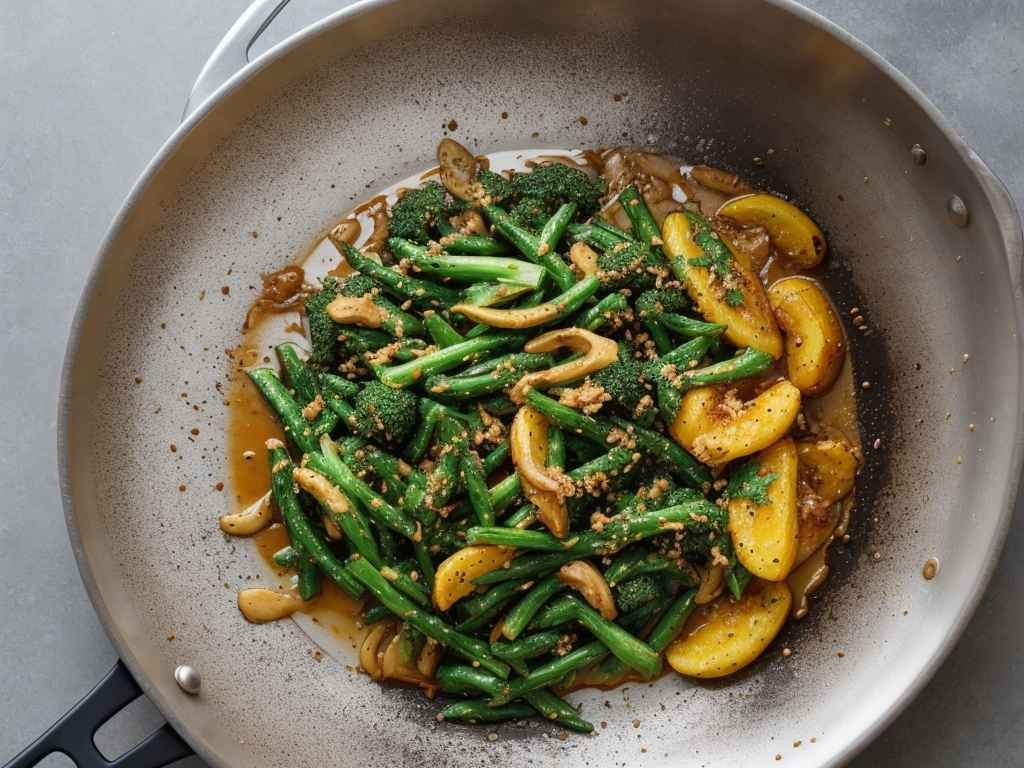Walnut oil, known for its rich, nutty flavor, is a popular choice in gourmet cooking. It’s often used in salad dressings, marinades, and baking, but can we use Walnut oil for frying? Let’s explore the properties of walnut oil and see if it’s a viable option for frying.
What Makes a Good Frying Oil?
When selecting an oil for frying, there are several important factors to consider.
Smoke Point
The smoke point of an oil is the temperature at which it starts to smoke and break down. Oils with high smoke points are generally better for frying because they can withstand the high temperatures without burning.
Flavor
The flavor of the oil can significantly impact the taste of the fried food. Neutral oils are often preferred for frying, as they do not overpower the dish’s natural flavors.
Nutritional Content
Health-conscious cooks also consider the nutritional profile of the oil, looking for options that provide healthy fats and essential nutrients.
Nutritional Profile
Healthy Fats
Walnut oil is rich in polyunsaturated fats, including omega-3 and omega-6 fatty acids, which are beneficial for heart health.
Vitamins and Minerals
It also contains vitamins E and K, which are important for skin health and blood clotting, respectively.
Flavor Profile
Rich, Nutty Flavor
Walnut oil has a distinctive nutty flavor that can add depth to dishes. This makes it a favorite for finishing touches in cooking rather than a primary cooking oil.
Culinary Uses
Besides frying, walnut oil is commonly used in salad dressings, sauces, and baked goods, where its flavor can shine without being subjected to high heat.
Smoke Point of Walnut Oil
What is the Smoke Point?
The smoke point is the temperature at which oil begins to smoke and produce toxic fumes. This is a crucial factor in determining whether an oil is suitable for frying.
Explore: Can you bake with walnut oil ?

Walnut Oil’s Smoke Point
Walnut oil has a relatively low smoke point, around 320°F (160°C). This makes it less suitable for high-heat frying methods.
Comparison with Other Oils
For reference, oils like canola, peanut, and vegetable oil have smoke points above 400°F (204°C), making them better suited for frying.
Frying with Walnut Oil
Suitability for Different Frying Methods
Shallow Frying
Walnut oil can be used for shallow frying at lower temperatures. Its unique flavor can enhance dishes when used in moderation.
Deep Frying
Due to its low smoke point, walnut oil is not ideal for deep frying. The high temperatures required for deep frying can cause the oil to burn and produce off-flavors.
Impact on Food Flavor
Using walnut oil for frying can impart a rich, nutty flavor to the food. This can be desirable in some dishes but may overpower others.
Explore: What does walnut oil taste like?
Health Benefits of Walnut Oil
Omega-3 Fatty Acids
Heart Health
Walnut oil is a good source of omega-3 fatty acids, which are known to support heart health by reducing inflammation and improving cholesterol levels.
Anti-Inflammatory Properties
The anti-inflammatory properties of omega-3s can also help in managing chronic inflammatory conditions.
Antioxidants
Vitamin E
Walnut oil is rich in vitamin E, an antioxidant that helps protect cells from damage and supports skin health.
Potential Drawbacks
Cost Considerations
Walnut oil tends to be more expensive than other cooking oils, which can be a limiting factor for some.
Short Shelf Life
It has a shorter shelf life due to its high polyunsaturated fat content, which makes it prone to oxidation and rancidity.
Allergen Concerns
As a nut oil, it can trigger allergic reactions in individuals with nut allergies.
Explore: How Long Walnut Oil Take to Dry

Alternative Uses for Walnut Oil
Salad Dressings
Walnut oil’s rich flavor makes it an excellent choice for salad dressings, adding a gourmet touch to any salad.
Baking
In baking, it can be used to add a subtle nutty flavor to cakes, cookies, and breads.
Sauces and Marinades
Walnut oil can also be used in sauces and marinades, where it can enhance the flavor profile of the dish without being exposed to high heat.
Conclusion
Walnut oil, with its rich, nutty flavor and numerous health benefits, is a fantastic addition to many dishes. However, due to its low smoke point, it’s not the best choice for high-heat frying. For shallow frying or adding a unique flavor to finished dishes, walnut oil can be a great option. Always consider the specific needs of your recipe and the cooking method to determine if walnut oil is the right choice.
FAQs
Can walnut oil be mixed with other oils for frying?
Yes, mixing walnut oil with a higher smoke point oil can extend its usability for frying and add a unique flavor.
How should walnut oil be stored?
Walnut oil should be stored in a cool, dark place and refrigerated after opening to extend its shelf life.
Is refined walnut oil better for frying?
Refined walnut oil has a higher smoke point than unrefined walnut oil, making it more suitable for frying, but it may have a less intense flavor.
Can walnut oil be reused after frying?
It’s generally not recommended to reuse walnut oil after frying due to its low smoke point and the risk of it breaking down and becoming rancid.
What are the alternatives to walnut oil for frying?
Oils with higher smoke points like canola, peanut, and vegetable oils are better suited for frying due to their ability to withstand higher temperatures.


2 Comments
Hey people!!!!!
Good mood and good luck to everyone!!!!!
[…] Explore: Can we use walnut oil for frying? […]